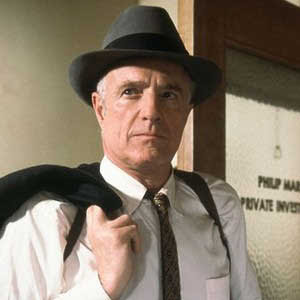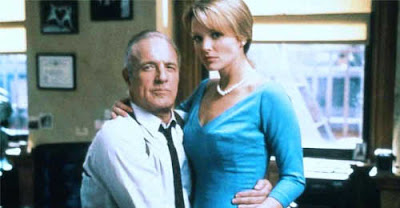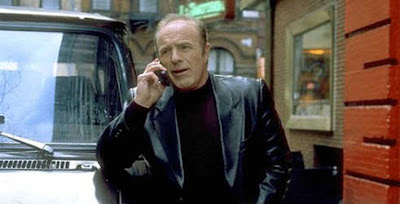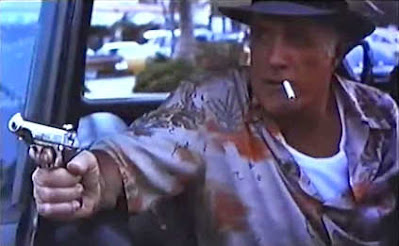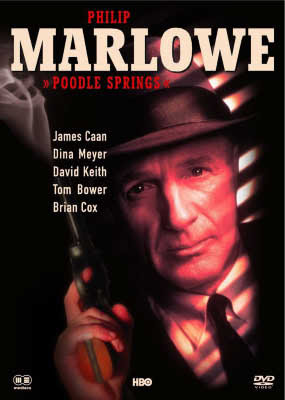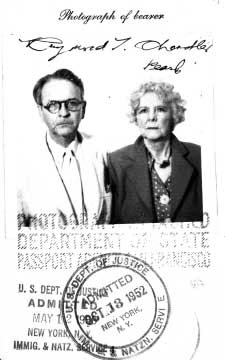Poodle Springs
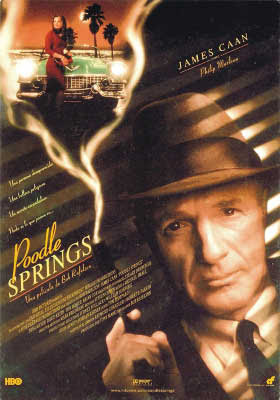
Director: Bob Rafelson
Year: 1998
Rating:
7.0
Raymond Chandler
only wrote four chapters of a proposed Philip Marlowe novel before he passed
away in 1959. Four short chapters. In which most of it is given to describing
a swank home where he is going to live. "It was a very handsome house except
it stank decorator". In the third chapter he runs into Manny Lipschultz who
needs his help and Marlowe beats up a couple of his hoods. Then Chandler
died. It was a long time coming as he spent his final years in a stupor of
alcohol and depression. He put a gun in his mouth once and pulled the trigger.
It was a misfire. He wanted to die but he had a lot of friends who kept him
going. Thirty years later Robert Parker finished the book for Chandler. Parker
who was the author of the Spencer books was a huge fan of Chandler - as were
pretty much every detective writer of tough private eyes - and so took it
upon himself to write this and then later wrote Perchance to Dream, a sequel
to The Big Sleep. Poodle Springs chronologically follows Chandler's last
novel, Playback, written during those drunken hazy days and considered his
weakest book.
